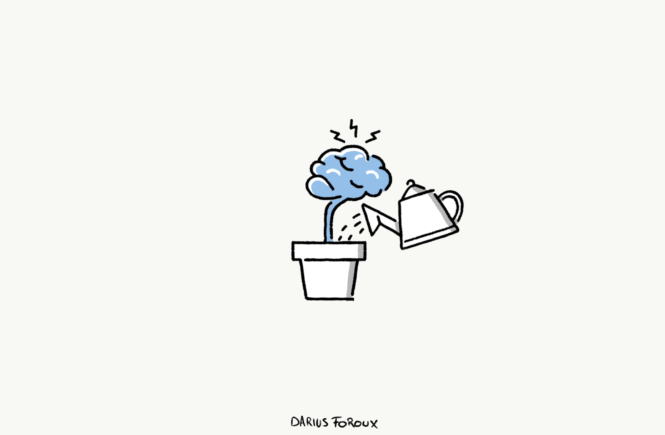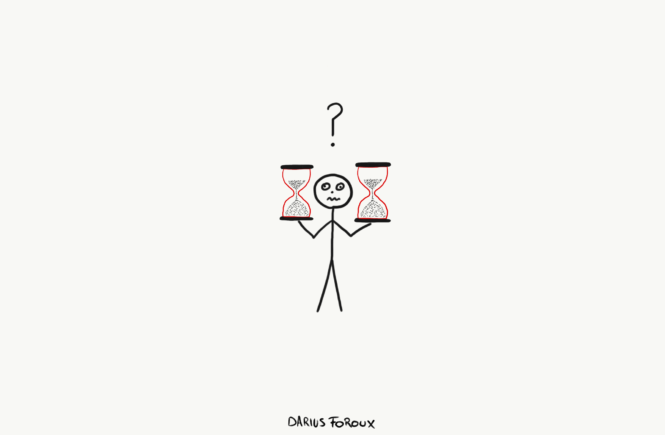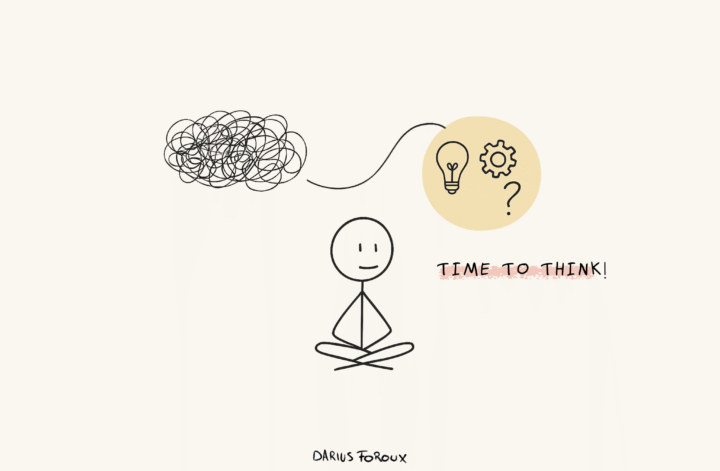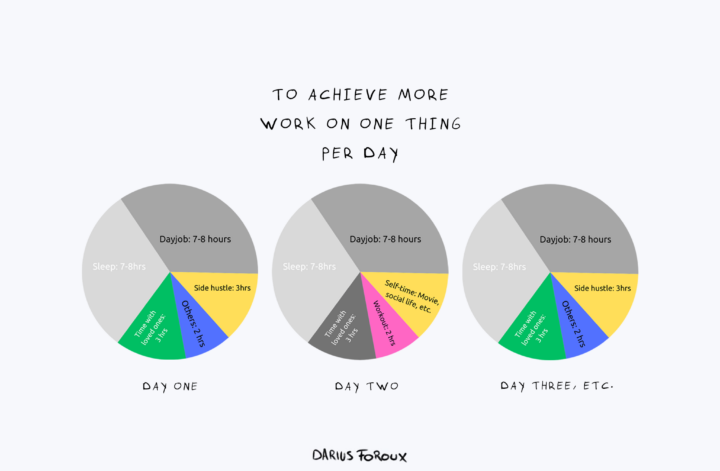Everyone procrastinates. If you ever meet a person who claims they never procrastinate, you’re probably dealing with a robot.
Just because everyone procrastinates, it doesn’t mean it’s good behavior. It means we as humans have our flaws. And that’s okay.
But what is procrastination actually? You hear so much about it. Some people say it’s good for creativity. Others say it’s the biggest enemy of results (me). I’ve found that procrastination means different things to different people.
You’re procrastinating when you’re “delaying something that must be done, often because it is unpleasant or boring.” (Source: Cambridge Dictionary) Here are some examples of when you’re procrastinating:
- You have a deadline on Friday and you haven’t started the work while it’s already Wednesday
- You haven’t cleaned your house for three weeks and still don’t feel like doing it
- You have an exam on Monday and you’re in the bar on Saturday
- You wrote one page of your novel three years ago and put off the rest until later
- You registered a domain two years ago but never created your blog
- You put on your running clothes and shoes, you take a look outside, see it’s windy, and watch YouTube videos instead
These examples resemble things from my own life. You get the idea. We are procrastinating when we’re delaying unpleasant work that’s actually important to us.
What About The Good Type Of Procrastination?
A highly study published from the American Psychological Society journal, by Dianne Tice and Roy Baumeister, showed that procrastination is related to depression, low self-esteem, anxiety, and stress.
Another scientist, Adam Grant, argues that procrastination is actually not that bad. He believes that the right kind of procrastination benefits creativity.
It’s a fun way to approach this subject and I can see it might work for some people. But I can’t relate to it at all. My biggest issue with Grant’s article is that he quotes the Zeigarnik effect—the belief that people have a better memory for incomplete tasks than for complete ones.
The idea is that uncompleted tasks linger in your mind, which is supposedly a good thing. But more recent research shows that Zeigarnik findings were highly questionable.
But let’s give “pro-procrastination” movement the benefit of the doubt. Let’s assume it’s okay to delay tasks. Apparently, Steve Jobs did it all the time! However, if you and I habitually procrastinate on all our important tasks for a month, the majority of our lives and relationships will fall apart.
The problem with this way of thinking is that the way you do ONE thing is how you do everything. Have you ever seen the bedroom of a procrastinator? It’s a mess. It’s disorganized. And one can argue the mind of a procrastinator looks the same.
But I get what Adam Grant and others are trying to say. They are speaking to the perfectionists who beat themselves up for not taking more action. If that’s you, I would take things lightly.
I also encourage you to take regular breaks. If it’s something that boosts creativity, its’ that. Go for a walk, read a book, have lunch with a friend. Those things are great for us.
However, taking your time to think or delaying a project because you need more time to do a better job are NOT signs of procrastination. The truth is that most of us procrastinate as in, “delaying something that must be done, often because it is unpleasant or boring.”
Get It Done and Move On
I love short sayings and one-liners that help me to remember things. It’s pretty corny but what can I say; it works.
One of my mottos is Do It Today (not tomorrow), I even published a book with that title. I use that motto to remind myself to avoid procrastinating import tasks.
But lately, I’m more about Get It Done and Move On.
As in, I know you don’t feel like doing that unpleasant work, but it’s something that matters to you, so just get it done and get on with your life.
Look, if I let myself go, I would do nothing all day long. Honestly. I wouldn’t make my bed, I would eat canned food, never work out, and I would just play video games, watch movies, and go out with my friends.
But that doesn’t happen to me because I have a system for getting things done. I take care of my tasks effectively, waste no time, and move on with my life.
So is procrastination bad for you? It sure is. But fortunately, we can do something about it. We can learn to overcome procrastination.
It’s honestly not that tough. You only need a system that doesn’t make life more difficult than it is. I’ve published an article about my system. The article also includes several tips for overcoming procrastination.
What you’ll find is that a productive lifestyle equals a healthy lifestyle. When you always execute your task and never are behind on anything, you actually nurture your mind. You will have no stress about those lingering tasks. You have calm.
You Procrastinate When There’s Resistance
They key to a productive lifestyle is to make everything easy for yourself. You and I both know we always prefer to take the path of least resistance. There’s a large body of scientific research on this.
Unfortunately, evil marketers know this as well. In fact, Robert Cialdini exposed most of these practices in his seminal book, Influence. He continuously shows how organizations influence our behavior. Exploiting our urge to take the path of least resistance is one of their key strategies.
Who actually wants to call a company to cancel their subscription? No one. That’s why many businesses require you to do that. I think it’s unethical.
The truth is: The more we delay things, the more resistance we create.
Look, I get that these companies try to exploit our tendency to procrastinate. But sometimes it seems like we’re intentionally trying to make our own lives hard.
A few years ago, I signed up for a gym that had great facilities. They had state of the art equipment, a lot space, helpful staff, a pool and sauna, you name it. There was only one issue: It was about 20 minutes away from my house. And it wasn’t on the way to my office or any other place I regularly visit. But the salesperson who gave me the tour was super persuasive. I couldn’t help but sign up on the spot.
You know where I’m going with this. I hardly ever went to that gym. Getting there took me a little bit of effort, but that was enough to not go. After that experience, I signed up for a gym that was on the same route I took to my office. I didn’t have to take a detour either. I literally drove past it several times a week.
Guess what? I went to the gym every time I drove to my office. There was no resistance. You see, it’s not your fault when you procrastinate a lot. It doesn’t mean you’re weak.
Everyone procrastinates when there’s resistance. Your job is to remove it so you can get things done and move on. If you do that consistently, you become someone who hardly ever procrastinates.




